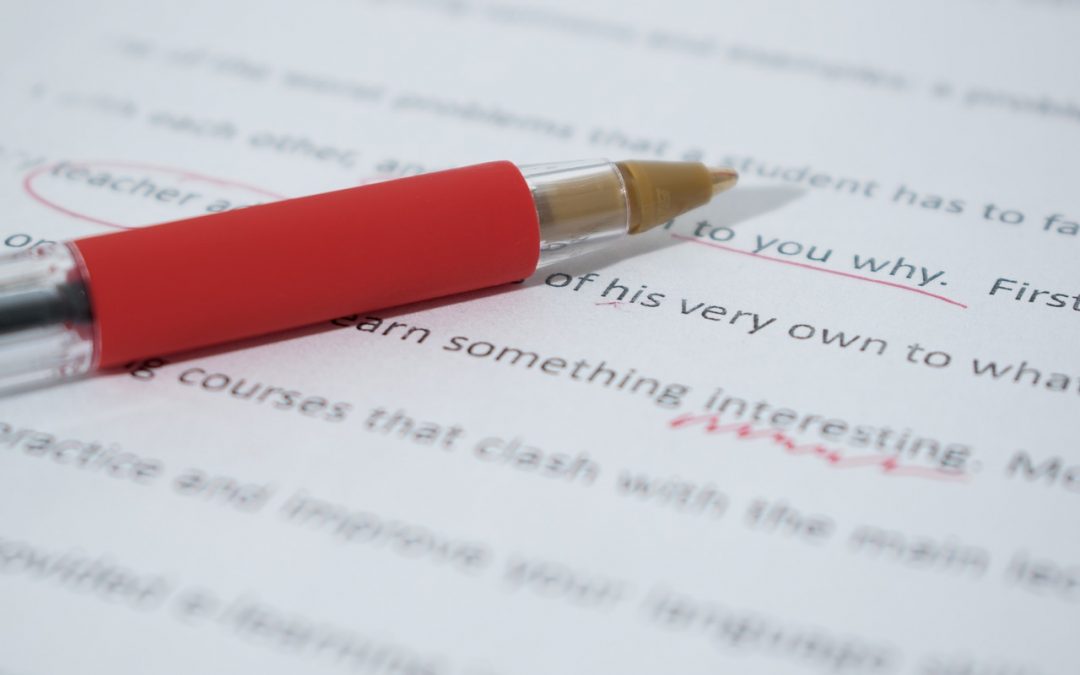In a previous post, I lamented the task of the proofreader, likening it to emptying a bag of sugar: no matter how hard we shake the bag, a few crystals will cling stubbornly to the sides. So too will a typo or a usage issue elude the careful proofer, even after multiple passes.

I’m nearly done proofreading my latest book, Shredded, a novel of a dystopian future, in which nearly all human activity takes place in virtual reality and privacy is nonexistent. This is my third book and my first book written in Scrivener, a word processor designed specifically for writers. If you haven’t tried it, I highly recommend it. This is more than a digression – I credit Scrivener at least in part with the clean manuscript.
Because I didn’t find many issues. Let me walk that back a bit: I didn’t find many formatting, punctuation, or spelling issues. Scrivener kept me clean through the whole process and the formatting features of the compiler (Scrivener compiles the document to any of a number of formats, including print and ebook) prevent many common formatting errors. I found a few misused words, misspellings, and missing punctuation, but not many, certainly fewer than ten. And because Scrivener compiles the same source documents to both the print and ebook formats, I can make corrections to a single source and know that it’ll show up correctly in the Kindle and paperback versions. You can find a link to Literature & Latte, the makers of Scrivener, on my Links & Resources page.
So why all the Post-it® flags? They’re almost all issues of style, and almost all of them are things I would have passed in my first two books. I hope that’s a sign that I’m maturing as a writer, but regardless, the process gave me some insight into my writing. For example, one thing I learned was that I often put the punch line of a sentence right after the base clause and follow it up with modifiers more suitable as lead-ins. This trait has a tendency to dilute the impact of the sentence. I must have done it a dozen times. Another finding is that I use a lot of words; too many, really. I cut a lot of them out.
As I said in my previous post, we owe our readers the highest quality product that we can produce. Copyediting is a necessary, if not 100% efficient chore. But the proofing process also gives me an opportunity to learn something about my writing and to improve it. That, and the fact that it gets me closer to a finished product I can be proud of, is why I don’t mind it. I even kind of like it.
The book’s pretty clean now. But won’t stop me from overhauling the prologue and chapter 1. It’s just not setting the hook deep enough.
The Proofer's Dilemma, Part 2. Click To Tweet
Copyright © [2016] by Charles O’Donnell, All Rights Reserved
Author Website | Amazon Author Page | Goodreads | Facebook | Twitter

YET ANOTHER UPDATE: The sequel to “Shredded” is “Shade.” The manuscript is in editing now, and my editor, Rebekah, has re-read “Shredded” to prepare. What do you know, she found mistakes in the latest version of “Shredded.” Shook a few more grains out of the sugar sack.
Latest update: another sharp-eyed reader found six more errors—right after I ordered another lot of 25 books! The paperback and ebook now have all known errors corrected (unknown errors are still there) but I have 40 copies in inventory I have to burn through. Fortunately, I’ll be selling at the Columbus State College Writer’s Conference this weekend, and I’ll have a book signing at The Book Loft in German Village at the end of the month.
I looked up “errata” in the Chigago Manual of Style to see how to prepare an errata sheet for my book. The CSM says that publisheres won’t publish errata for typos, but only for factual errors—misspelled proper names count. Since all the errors in Shredded are simple typos, no errata sheet will be included.
Since I posted this, a reader graciously pointed out two typos. I’ve corrected them, but I’m sure there are more lurking.